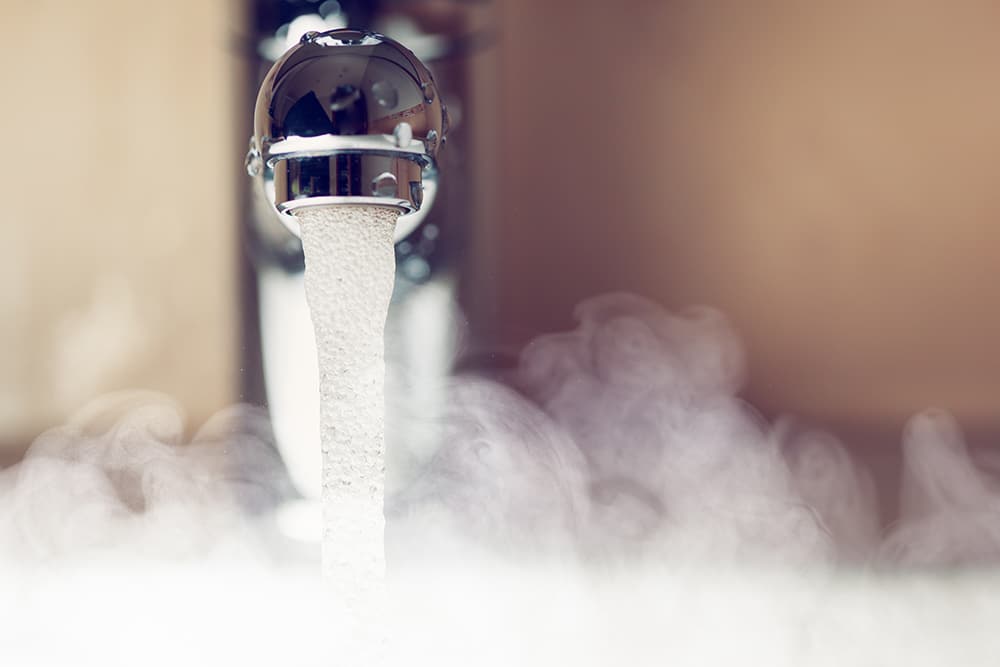Is Hot Water Good or Bad for Poison Ivy or Oak Rash?

Poison ivy rash is a common nuisance for outdoor enthusiasts, often leading to discomfort and itching. While some may believe that hot water can alleviate the symptoms of poison ivy rash, it's essential to understand the potential risks and benefits associated with this approach. Let's delve into the debate surrounding using hot water for poison ivy rash treatment.
How to Identify Poison Ivy Rash
Before delving into the hot water debate, it's crucial to recognize the symptoms of poison ivy rash. Typically, poison ivy rash presents as red, itchy bumps or blisters on the skin, often accompanied by swelling and inflammation. The rash may develop a streaky or linear pattern and can spread rapidly if not treated promptly.
What Causes Poison Ivy Rash?
Poison ivy rash is caused by exposure to urushiol, an oily resin in poison ivy plants' leaves, stems, and roots. Upon contact with the skin, urushiol triggers an allergic reaction, developing the characteristic rash. The severity of the rash varies from person to person, with some individuals experiencing mild irritation and others developing more severe symptoms. It's important to note that even indirect contact with urushiol, such as through contaminated clothing or pets, can develop poison ivy rash. Understanding the source of the rash and taking preventive measures to avoid contact with poison ivy plants can help minimize the risk of exposure and alleviate discomfort.
Why Does Hot Water Feel Good on Poison Ivy Rash?
Hot water can temporarily relieve a poison ivy rash by stimulating the release of histamine, temporarily alleviating itching sensations. When exposed to heat, the body's sensory nerves may be overridden, providing a brief respite from discomfort. However, it's essential to exercise caution as prolonged exposure to hot water can exacerbate inflammation and lead to further skin irritation. While hot water may offer short-term relief, it is not a recommended long-term solution for treating poison ivy rash, and alternative methods should be considered to manage symptoms effectively.
Should You Use Hot Water on Poison Ivy Rash?
Hot water for treating poison ivy rash is a topic of contention. While hot water may temporarily relieve itching, it can also exacerbate the symptoms and lead to further complications. The primary reason hot water is discouraged for poison ivy rash treatment is its ability to open up the pores in the skin. This can facilitate the penetration of urushiol, the toxic oil found in poison ivy plants, into the skin, potentially worsening the rash.
Why Is Hot Water Bad for Poison Ivy Rash?
Urushiol, the oily resin in poison ivy plants, is the culprit behind the development of poison ivy rash. Washing the affected area with cold water and soap helps to remove urushiol from the skin, preventing further exposure and minimizing the spread of the rash. In contrast, hot water can open up the pores, making it easier for urushiol to penetrate the skin and exacerbate the rash.
How to Treat Poison Ivy Rash Effectively
Effective treatment for poison ivy rash involves promptly washing the affected area with cool water and soap to remove urushiol. Additionally, over-the-counter remedies such as Calagel or Tecnu Rash Relief Spray can help alleviate itching and inflammation associated with the rash. Use as a cleanser to remove the urushiol oil from skin, clothing, and tools. Avoiding hot water and other irritants that can worsen the symptoms is crucial for promoting healing and preventing further discomfort.
The Benefits of Cool Water Treatment
Cold water acts as a natural vasoconstrictor, helping to reduce inflammation and soothe irritated skin. It also helps to close the pores, preventing further absorption of urushiol and minimizing the spread of the rash. Using cold water to cleanse the affected area is a safe and effective way to remove urushiol and alleviate itching associated with poison ivy rash.
The Risks of Hot Water Treatment
While hot water may temporarily relieve itching associated with poison ivy rash, its use is generally discouraged due to the risk of exacerbating the symptoms and spreading the rash. Hot water can open up the pores, allowing urushiol to penetrate the skin more deeply and potentially leading to a more severe reaction. Additionally, hot water can strip the skin of its natural oils, leading to dryness and further irritation.
While hot water may temporarily relieve itching associated with poison ivy rash, its use is generally discouraged due to the risk of exacerbating the symptoms and spreading the rash. Opting for cold water and specialized cleansers like Tecnu Original, offers a safer and more effective approach to treating poison ivy rash. Remember always to consult a healthcare professional for severe or persistent symptoms.




